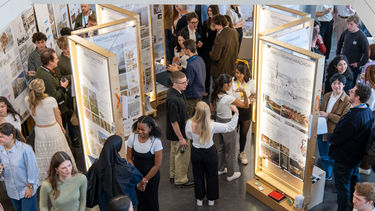Events
Events take place at the School of Architecture and Landscape throughout the year.
Upcoming events
Open days and campus tours
Get a feel for the atmosphere, the people, the campus and the city.

Summer exhibitions
Our annual summer exhibitions showcase the outstanding achievements, talent and work undertaken by our students over the past year.
Showcasing student talent